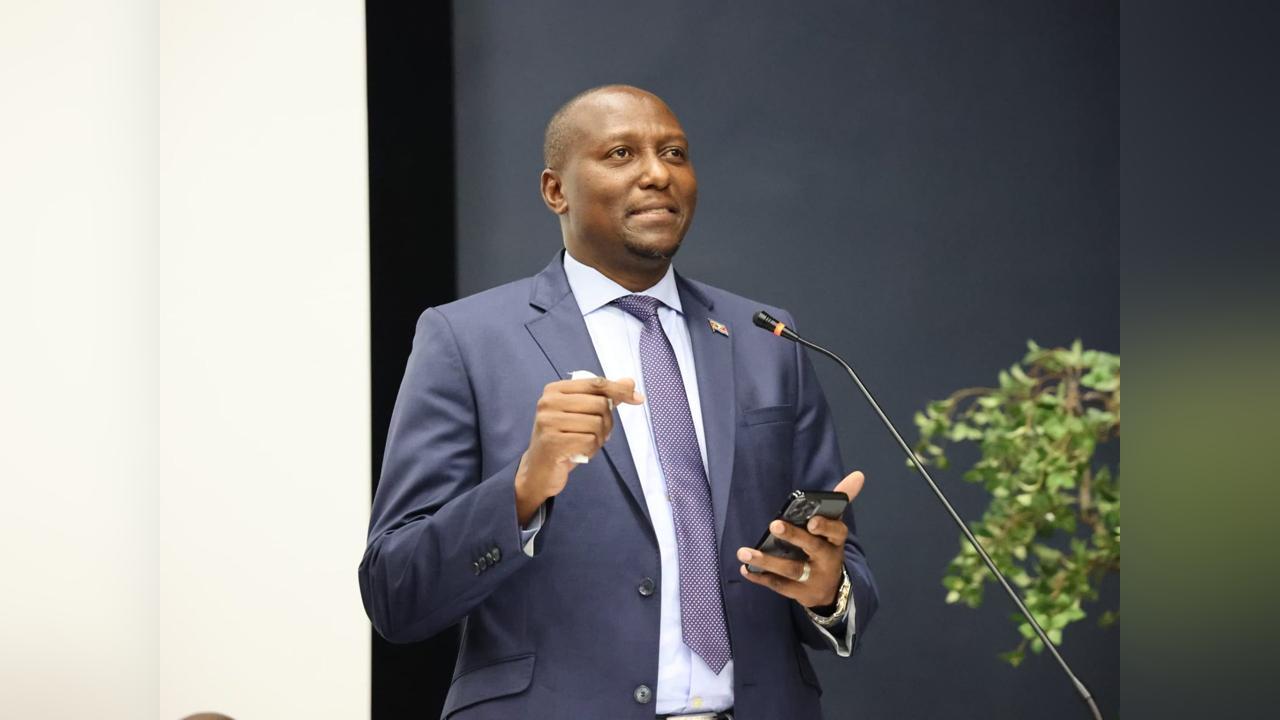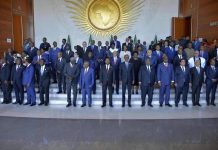Africa-Press – Eswatini. I noted with concern the words of the honourable Prime Minister Russel Dlamini during the now infamous Editors Forum. I would have to agree 100 per cent that there is this negativity within emaSwati, and it is there everywhere you go. The continued criticism of all big capital projects, high divorce rate, women and children abuse and gambling rate shows a sick society.
I also noted the comment by the prime minister that the media is very negative. Unfortunately, the media tends to reflect society, and emaSwati at this time are very negative and have been so for some time. The journalists within the media are individuals who also reflect society. They reflect the good side and the bad side, and we sew a very bad disrespectful side, just like we saw in June, 2021 during the unrest. The question is; do we call it an isolated incident of one disrespectful individual or should we get lessons from it? It is most unusual for an individual to publicly call out a sitting prime minister in that way in Eswatini at least. It sounded so personal and direct, that everyone following, even on social media, cringed. One recalled the attacks against our Monarch were just as personal and just as direct on the June 29, 2021 unrest.
Negative mindset effects
What has created this negative mindset within emaSwati? Where is this negativity coming from? I will venture to give a few suggestions. Smyth (2022) states that the ‘human brain’ has a natural tendency to give weight to negative experiences or interactions more than positive ones. Psychologists refer to this as negativity bias. And it’s probably why some people tend to focus on that one bad thing in a mountain of good things. Unfortunately, negative emotions generally involve more thinking, and the information is processed more thoroughly than positive ones.
We often have more descriptive adjectives to explain negative thoughts than we do good ones. ‘‘Bad emotions, bad memories, bad feedback, and bad impressions all have more impact.” This statement alone suggests to me that it is hard to be positive and could cause stress which causes diseases and accelerates aging. However, this one goes beyond. EmaSwati are going through hard times and cannot appreciate the hard work from some members of the government because there is an underlying disenfranchisement by a powerful force they feel powerless.
Dialogue still needed
The reality is that the ordinary emaSwati still don’t have that feeling of belonging to their country. EmaSwati love their culture and traditions but must go back to their sad reality after every traditional event. There is still need to sit in various forums, be it at imiphakatsi, community halls, churches, and truly, dialogue, not necessarily political party style.
These dialogues must include professionals, churches, teachers, workers’ unions, lawyers, doctors, youth, and farmers who are talking matters through about their country in a professional convention centre setting. The Sibaya dialogue was indeed useful but fell short in leaving out the people who contribute the most to the economy.
EmaSwati have not embraced their country, and true participation will come the day emaSwati feel they have a meaningful contribution to who is leading their government. The head of State will always be the King. In short, it’s the day they have an elected prime minister who has campaigned openly throughout the four regions and is accountable to the people. This is hard for a traditional person like me to say, just as will be hard for many who love our Monarchy to admit. The attempts at traditional democracy made at Sibaya are not enough for the middle class, the working class, and the average liSwati who sees beyond the smoke screams of traditional democracy. EmaSwati are educated enough and are aware but remain respectful. Most have no ill feelings against the present government, in fact some of us feel they are the right pick and are doing a great job given the circumstances.
Muammar Gaddafi did not see it coming. Yes, the Western neoliberalist NATO contributed to his overthrow, but his people did not defend him including his blood relatives at Sirte. He had given the Libyan people everything but refused them a say in how they were governed. He truly believed he was protecting them against themselves. Just like Eswatini, they were allowed to elect individuals from their communities to the people’s congresses, but the ‘revolutionary brother leader’ formed a government for them. Almost everything was free in Libya, including a house when one got married and shares of oil profits. A truly First World country now in ruins run by three warlords because he failed to read the times.
The question we must honestly ask ourselves is; what happened to all the monarchies around the world? Most who could not read the times simply disappeared altogether and others survived and became constitutional monarchs who presided over an elected prime minister who formed government. Their remaining influence and power was determined by how soon they started controlling the narrative of change, such that when usual dirty politics hit the fan, the monarchy remains clean. I have no delusion that the British Monarchy still has great influence over the prime minister and even greater influence in the Houses of Parliament (to protect their interests) but to the ordinary Brits, it is their elected government. The Arab monarchies are very different because they have money and serious money. The citizens do not know any lack or poverty.
Moderate working class
This country is being held together by the moderate working class. These are emaSwati who are caught in-between. They have a job that gives them just enough to survive from month to month. They are the civil servants, the security officers, and the general working class who in total are just about 90 000. They mummer and complain privately at every chance they get but wake up and go to work. More than half the population is very young, and, in a few years, they will flood the job market and find no jobs. Hardship will set in, and South Africa will close them out. They have been exposed to social media which is so biased against the King, and it will expose them to crazy revolutionary ideas. The moderate class will not be able to hold them back and June 2021, will be like a picnic.
Source: TIMES
For More News And Analysis About Eswatini Follow Africa-Press







